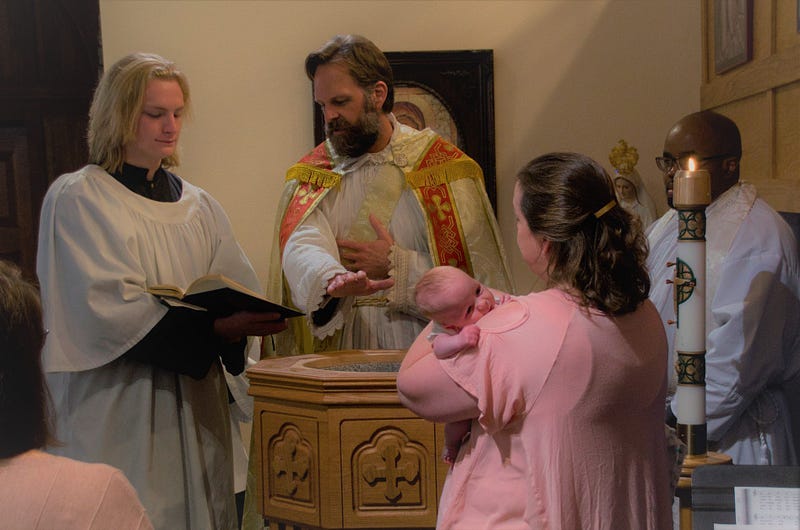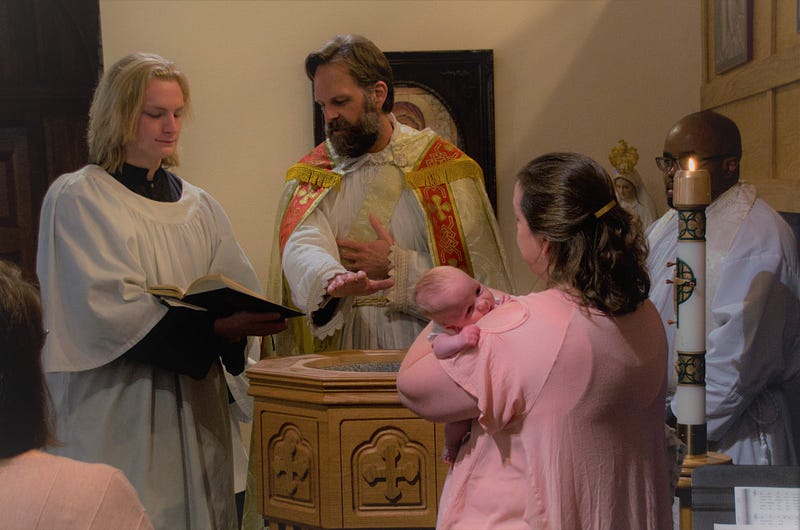Baptisms, Weddings & Funerals: Is there more to being a deacon?
I hear from a lot of deacons, and especially those in formation for diaconal ministry, that they find my articles on the diaconate helpful…

I hear from a lot of deacons, and especially those in formation for diaconal ministry, that they find my articles on the diaconate helpful. I am grateful that my own reflections and experiences in ministry are useful to others. With that in mind, I want to share something about my personal experience being a deacon these past few years (I will have been ordained four years this coming April): I don’t do a lot of baptisms, weddings, or funerals.
I say this because if you do a quick search of “what do deacons do” in the Catholic Church, the first things you’ll find mentioned are baptisms, weddings, and funerals. This is understandable, because these are important public acts of the Church over which a deacon, as an ordained minister, may preside. You’ll also find a lot of mention of what a deacon can’t do, most likely in an effort to distinguish diaconal ministry from priestly ministry. Deacons cannot preside at the Eucharist (the Mass), hear confessions, administer confirmation, or anoint the sick. The things we often see priests doing that deacons can also do is to preside at baptisms, weddings, and funerals, so many discerning a call to diaconal ministry may presume that they will be doing a lot of that sort of thing.
And many deacons do. One of the men in my ordination class had a funeral scheduled the week after ordination. I’ve known deacons at large parishes who have regularly scheduled group baptisms one Saturday per month. Some deacons are certainly kept busy with baptisms, weddings and funerals. But not all are.
In my nearly four years in the diaconate I’ve baptized exactly two babies, presided at one wedding, and zero funerals (though I have presided at a few graveside committal services). The reason is very simple. I am assigned to a small parish. We’ve had an average of three funerals per year for the past ten years. We might do ten baptisms in a year, whereas a larger parish may have that many per week. Given the relatively small amount of baptisms, weddings and funerals we are called upon to offer, our pastor naturally likes to preside over these himself, and rightly so. So I have assisted at very many baptisms, weddings and funerals. I’ve even preached at some of them. But I have presided at only a few.
So what does diaconal ministry look like for me? I do quite a bit of preaching, at least two or three times per week on average. I offer Benediction once or twice a week at Adoration. I preside over Vespers (Evening Prayer) once per week. I lead a weekly catechetical discussion through campus ministry, and also offer one-on-one spiritual guidance for many of my college students. I do a lot of teaching and sacramental preparation, including RCIA, confirmation preparation, and marriage preparation. I do some adult education with the local parish, and I advise my pastor a lot. I’ve been invited to speak for retreats. I do some writing, both for this blog and our diocesan paper. I’m kept pretty busy, just not with baptisms, weddings and funerals.
My point is this: diaconal ministry doesn’t look like any one thing. There is no mold that fits us all. Every deacon has certain gifts and talents that God has blessed him with, which he will be called to put at the disposal of those whom he serves in various ways. Every community a deacon is assigned to will have their particular needs. Every mission has its own challenges and opportunities a deacon should respond to. A deacon is a servant and ultimately his ministry is about serving God through service to his bishop and the people his bishop has assigned him to serve.
If you are aspiring to the diaconate, it’s natural that you have some idea in your head of what being a deacon will be like; but putting yourself at the service of God and his people means being willing to put aside our own conceptions of what ministry is about — what we might like to do — to be more open to what God is actually calling us to do as laborers in his vineyard.



